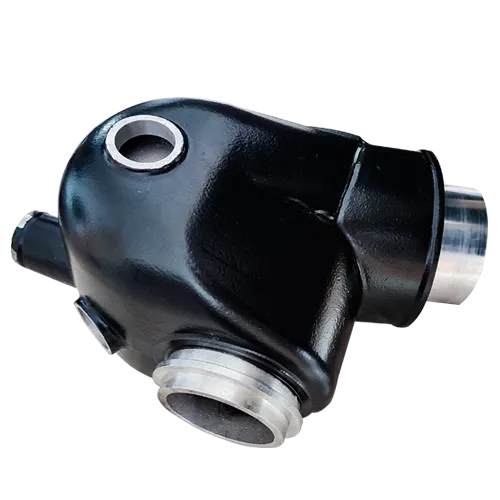Mobile:+86-311-808-126-83
Email:info@ydcastings.com
different types of impellers
Different Types of Impellers Understanding Their Roles and Applications
Impellers are critical components in various fluid handling applications, including pumps, compressors, and turbines. They are designed to increase the velocity and pressure of fluids—both liquids and gases—while facilitating movement through a system. The design and type of impeller used can significantly influence the efficiency and performance of the equipment. This article explores the different types of impellers, their characteristics, and their applications.
1. Radial Flow Impellers
Radial flow impellers are one of the most common types found in centrifugal pumps. They work by moving the fluid outward from the center of the impeller to the outer edge, creating a radial flow pattern. These impellers are ideal for applications requiring high flow rates and low viscosity fluids. They are known for their simplicity, robust design, and ability to achieve high efficiencies. Common applications include irrigation systems, water supply systems, and industrial process pumps.
Unlike radial flow impellers, axial flow impellers push the fluid in a direction parallel to the impeller shaft. This design is similar to a propeller, where the fluid moves straight through the impeller. Axial flow impellers are typically used in applications requiring higher flow rates at lower pressure rises. They are commonly found in large-scale water treatment plants, marine propulsion systems, and certain cooling tower applications. Their efficiency and ability to handle large volumes of fluid make them indispensable in many sectors.
3. Mixed Flow Impellers
Mixed flow impellers combine features from both radial and axial flow designs. They are capable of moving fluid both radially and axially, offering a versatile option for many applications. Mixed flow impellers are particularly useful in situations where a moderate flow rate and pressure increase are required. They are often utilized in wastewater treatment plants, certain types of hydraulic turbines, and in some industrial processes where a balance of pressure and flow is essential.
different types of impellers

4. Open and Closed Impellers
Impellers can also be categorized based on their structure. Open impellers consist of blades that are free at the tips, allowing for easier passage of solid particles in suspension within the fluid. They are often used in applications where the fluid may contain debris or solids, such as in sludge pumps or wastewater treatment.
Conversely, closed impellers have blades that are enclosed by a shroud, providing better sealing and increased efficiency. This design reduces the possibility of cavitation and improves performance, making closed impellers a preferred choice in high-pressure applications, such as chemical processing and oil extraction.
5. Specialty Impellers
In addition to standard types, there are specialty impellers designed for specific applications. For example, screw impellers, often used in mixed-flow pumps, provide enhanced water transport while minimizing energy loss. Turbine impellers, used in gas turbine engines, are specifically designed to handle high-temperature gases at high speeds. Each specialty design addresses specific needs, enhancing the overall performance of the system.
Conclusion
In conclusion, understanding the different types of impellers and their respective applications is crucial for selecting the right equipment for fluid handling needs. From radial flow and axial flow to mixed flow and specialized designs like open and closed impellers, each type has unique characteristics suited to various operational conditions. By choosing the appropriate impeller, engineers can optimize system performance, enhance efficiency, and reduce operational costs. As industries continue to evolve and increasingly seek efficient solutions, the role of impellers will remain vital in the realm of fluid dynamics.
-
Why Should You Invest in Superior Pump Castings for Your Equipment?NewsJun.09,2025
-
Unlock Performance Potential with Stainless Impellers and Aluminum End CapsNewsJun.09,2025
-
Revolutionize Your Machinery with Superior Cast Iron and Aluminum ComponentsNewsJun.09,2025
-
Revolutionize Fluid Dynamics with Premium Pump ComponentsNewsJun.09,2025
-
Optimizing Industrial Systems with Essential Valve ComponentsNewsJun.09,2025
-
Elevate Grid Efficiency with High-Precision Power CastingsNewsJun.09,2025











